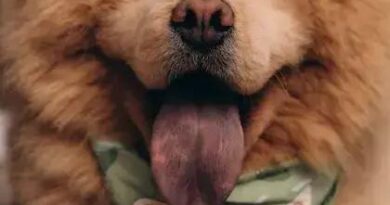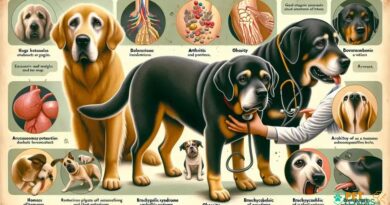O que é gaining weight
What is Gaining Weight?
Gaining weight refers to the process of increasing body mass, which can occur in both humans and animals, including dogs. In the context of canine health, gaining weight can be a natural part of growth, particularly in puppies, or it can indicate an underlying health issue. Understanding the factors that contribute to weight gain in dogs is essential for pet owners who want to maintain their furry friends’ health and well-being.
Causes of Weight Gain in Dogs
Several factors can lead to weight gain in dogs. These include overfeeding, lack of exercise, and certain medical conditions. Overfeeding occurs when dogs consume more calories than they burn, leading to excess fat storage. Additionally, sedentary lifestyles, often due to busy schedules or limited outdoor access, can contribute significantly to weight gain. Medical conditions such as hypothyroidism or Cushing’s disease can also cause dogs to gain weight despite a normal diet and exercise routine.
Signs Your Dog is Gaining Weight
Recognizing the signs of weight gain in dogs is crucial for early intervention. Common indicators include difficulty in feeling the ribs, a noticeable increase in body size, and a lack of energy or enthusiasm for play. Pet owners may also notice that their dog’s collar feels tighter or that they have difficulty moving around. Regular weigh-ins and body condition scoring can help owners monitor their dog’s weight effectively.
Health Risks Associated with Weight Gain
Excess weight in dogs can lead to a variety of health issues, including diabetes, joint problems, and cardiovascular disease. Obesity can strain the dog’s heart and lungs, making it difficult for them to engage in physical activities. Additionally, overweight dogs are at a higher risk for developing arthritis, which can severely impact their quality of life. Understanding these risks underscores the importance of maintaining a healthy weight for your dog.
How to Manage Your Dog’s Weight
Managing a dog’s weight involves a combination of proper diet and regular exercise. Pet owners should consult with a veterinarian to determine the appropriate caloric intake for their dog’s specific needs. Implementing a balanced diet that includes high-quality dog food, along with controlled portion sizes, is essential. Regular exercise, such as daily walks or playtime, is also crucial for burning calories and maintaining a healthy weight.
Dietary Considerations for Weight Management
When addressing weight gain, dietary considerations play a vital role. Choosing dog food that is specifically formulated for weight management can help. These foods typically contain fewer calories and higher fiber content, which can help dogs feel full without overeating. Additionally, incorporating healthy treats and avoiding table scraps can significantly impact a dog’s overall caloric intake.
Exercise Recommendations for Overweight Dogs
Exercise is a key component in managing weight gain in dogs. Regular physical activity helps burn calories and strengthens muscles. For overweight dogs, starting with short, gentle walks and gradually increasing the duration and intensity is recommended. Engaging in play activities, such as fetch or tug-of-war, can also encourage movement and make exercise enjoyable for your dog.
Monitoring Your Dog’s Progress
Monitoring your dog’s weight loss or maintenance progress is essential for ensuring their health. Regular veterinary check-ups can provide professional insights into your dog’s weight and overall health. Keeping a journal of your dog’s diet, exercise routine, and weight can help identify patterns and make necessary adjustments. Celebrating small milestones can also motivate both the owner and the dog.
When to Consult a Veterinarian
If a dog is gaining weight despite a controlled diet and regular exercise, it is crucial to consult a veterinarian. A professional can help identify any underlying health issues that may be contributing to weight gain. Additionally, veterinarians can provide tailored advice on diet and exercise plans, ensuring that your dog achieves and maintains a healthy weight.



